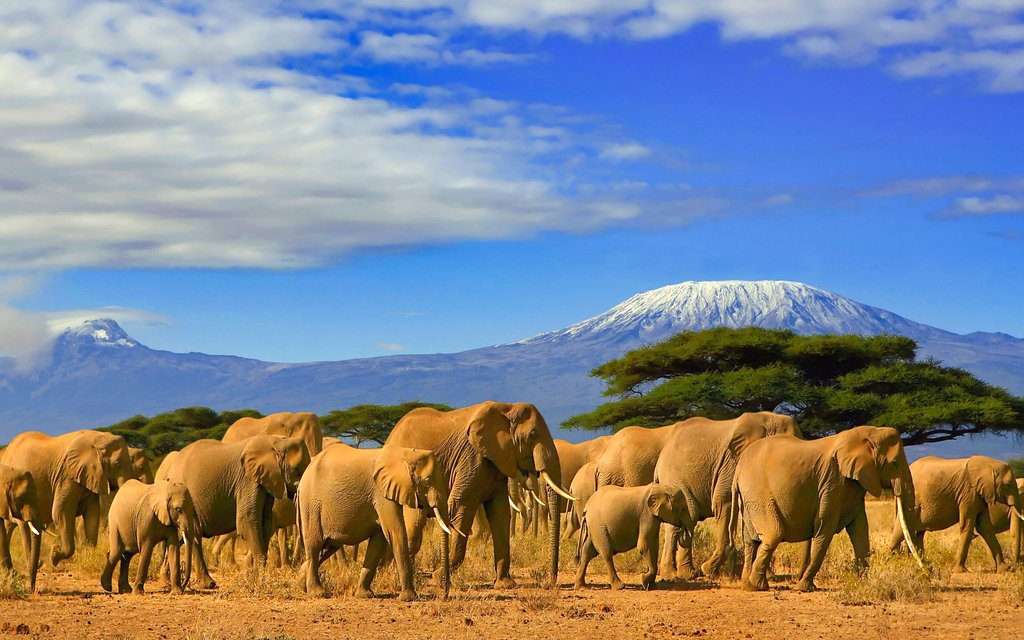Kenya Wildlife Service (KWS)
As the custodian of Kenya's rich biodiversity, the Kenya Wildlife Service (KWS) plays a pivotal role in preserving the nation's natural heritage. With a mandate encompassing the protection and management of national parks, reserves, sanctuaries, and marine parks, KWS offers a wealth of opportunities for wildlife enthusiasts and adventure seekers.
Key Services and Responsibilities:
- Conservation and Management: KWS diligently protects and manages Kenya's protected areas, ensuring the preservation of diverse ecosystems and wildlife populations.
- Public Education: The Service actively promotes conservation education, raising awareness about the importance of wildlife conservation and environmental protection.
- Human-Wildlife Conflict Mitigation: KWS addresses challenges arising from human-wildlife interactions, implementing strategies to minimize conflicts and ensure the safety of both humans and animals.
- International Collaboration: KWS collaborates with local and international partners to foster wildlife conservation efforts and address global environmental challenges.
KWS, responsible for roughly 8% of Kenya's landmass, oversees 23 National Parks, 28 National Reserves, and 4 National Sanctuaries. Their mission encompasses the protection and management of these areas, wildlife conservation education, and addressing human-wildlife conflicts. They collaborate with local and international partners to ensure the ongoing survival of Kenya's incredible ecosystems.
Entry Fee Breakdown:

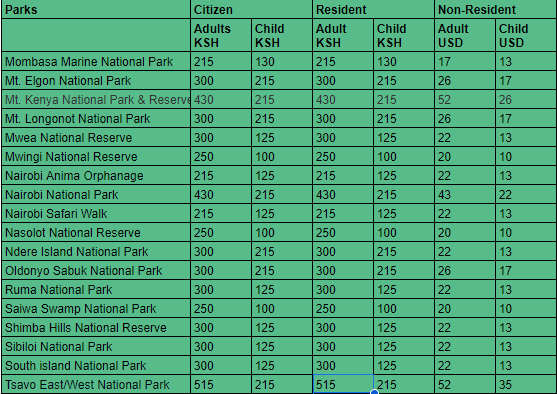
Additional Park Charges:
- Guided Tours:
Ksh. 1,720: up to 4 hours
Ksh. 3,050: over 4 hours - Vehicle Entry: Fees depend on vehicle size and capacity:
- Less than 6 seats: Ksh. 300
- 6-12 seats: Ksh. 1,030
- 13-24 seats: Ksh. 2,585
- 25-44 seats: Ksh. 4,050
- 45 seats and above: Ksh. 5,000
- Fishing Permits: A separate permit is required for fishing in specific locations like Mt. Kenya (Ksh. 1,550 per line-per day).
Payment Methods:
KWS facilitates convenient payment options for entry fees:
- Ecitizen Platform: Make secure online payments via MPesa, Visa Card, RTGS, or Electronic Funds Transfer (EFT) at https://kws.ecitizen.go.ke/.
Contact Information:
- Website: https://www.kws.go.ke/
- Email: kws@kws.go.ke
- Toll-Free: 0800 597 000
- Other Contacts: +254 (20) 2379407, +254 (20) 2379408, +254 (20) 2379409
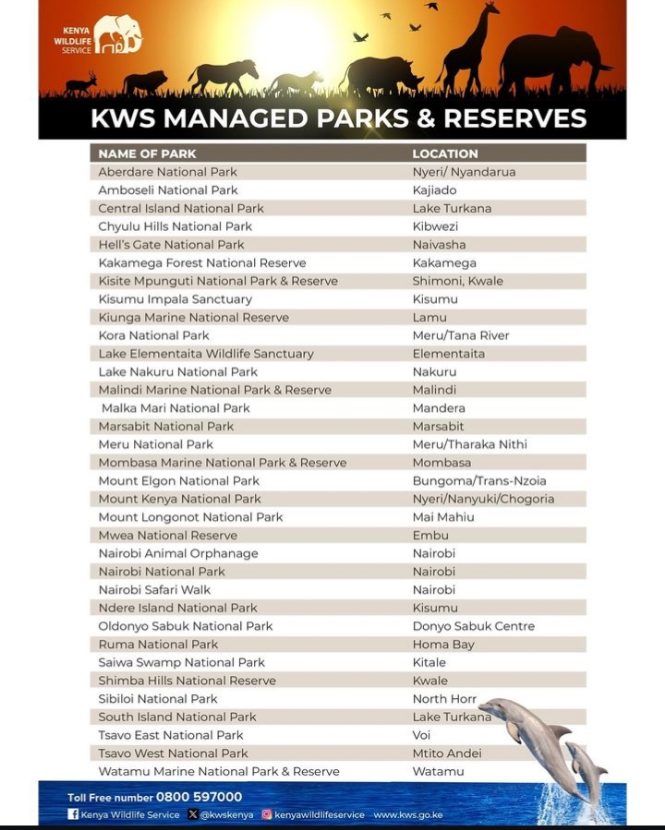
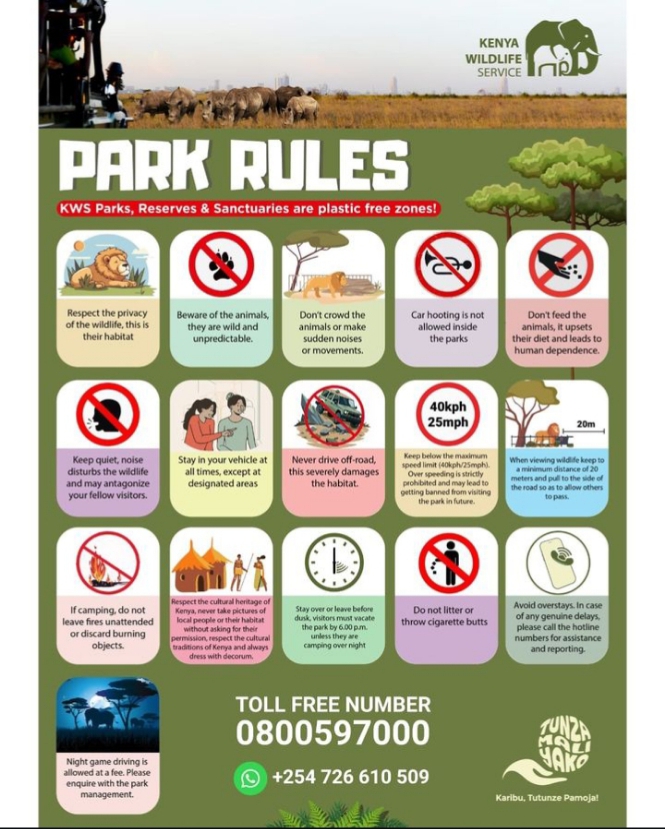
Masai Mara National Reserve
Renowned as one of the world's most iconic safari destinations, the Masai Mara National Reserve is a must-visit for any wildlife enthusiast. Managed by the Narok County Council (NCC), this vast expanse of grasslands and acacia woodlands is home to a diverse array of wildlife, including the Big Five: lions, leopards, elephants, rhinoceroses, and buffaloes.
Entry Fees and Regulations:
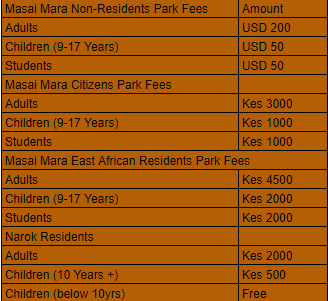
- Resident Rates: Applicable to residents of Kenya, Uganda, Tanzania, Rwanda, and Burundi.
- Non-Resident Rates: Apply to all other visitors.
- Child Rates: Apply to children aged 3-11 years old. Children under 3 enter for free.
- Student Rates: Apply to individuals up to 23 years old, sponsored by a recognized institution, with a valid student ID, and visiting as part of a pre-arranged school trip or research authorized by the park. Obtaining permission two weeks prior is mandatory.
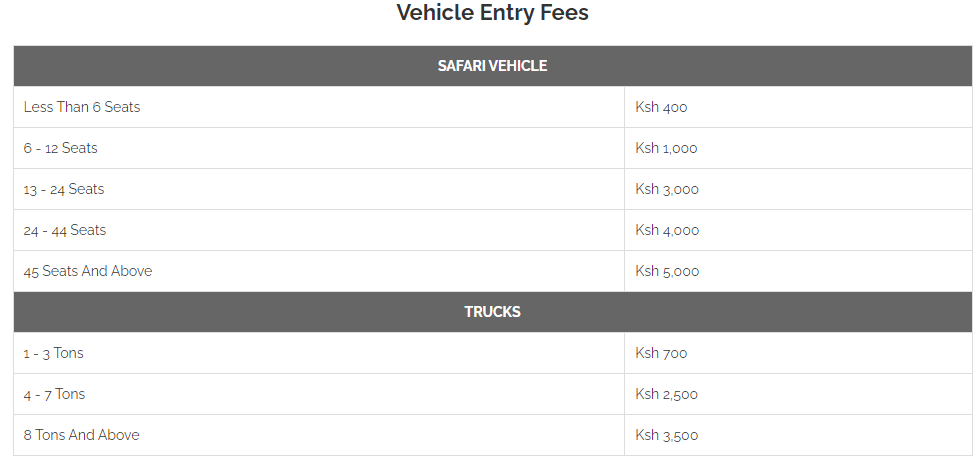




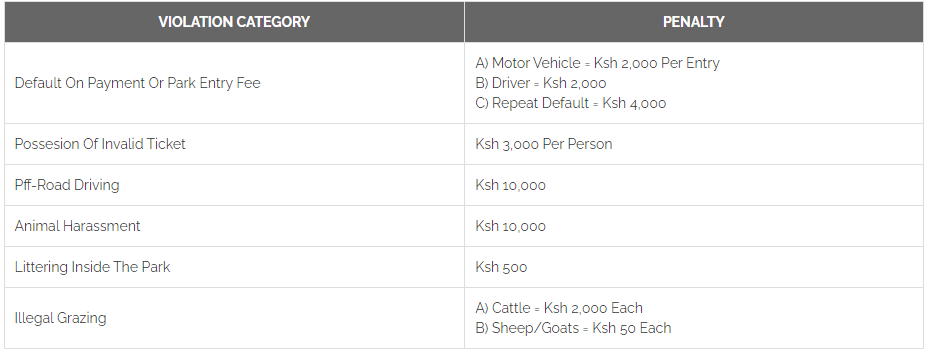
Additional Notes:
- 12-Hour Rule: Guests leaving the reserve after 11am will be charged an additional full-day park fee.
- Early Morning Activities: Visitors participating in activities like hot air balloon safaris in the Mara Triangle/Mara Conservancy on the morning of departure must pay a full day park fee.
- Camping: Campers are required to hire two rangers for overnight stays.
Note: Please be aware that visa requirements for Kenya have changed. Visitors now need to apply for an Electronic Travel Authorization (eTA) before their trip. You can apply for your eTA here: https://etakenya.go.ke/

